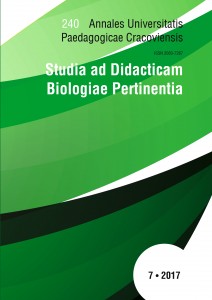The use of media for educating the intellectually disabled – for and against
The use of media for educating the intellectually disabled – for and against
Author(s): Małgorzata Pietrzak, Ewelina SobochaSubject(s): Media studies, School education, Methodology and research technology, Evaluation research, ICT Information and Communications Technologies, Inclusive Education / Inclusion
Published by: Wydawnictwo Uniwersytetu Komisji Edukacji Narodowej w Krakowie
Keywords: intellectual disabilities; education; ICT; multimedia classes; sensory classes; blended-learning;
Summary/Abstract: The aim of the study was to explore the possibilities of using advanced information and communication technologies in the process of educating individuals with moderate to profound levels of intellectual impairment. In the process of education three patterns for organizing classes were applied: with the use of multimedia, multi-sensory perception of the world and blended learning. The study was conducted with the participation of middle school students with moderate and severe intellectual disability from the Special School for Children with Disabilities. Co-participants in the study were students of the methodology course from the Jagiellonian University. We observed intensity of engagement, length of concentration on a task, degree of autonomy, ingenuity and interpersonal relations. We found that the diversity of syllabus and technical solutions stimulates and motivates students to take the initiative to become engaged in activities in class, it reinforces their concentration on a task, and it engages them in an activity, resulting in a visible increase in motivation to learn. The assortment of equipment and software dedicated to the intellectually disabled is not able to replace learning and acquiring new skills through practical activities.
Journal: Annales Universitatis Paedagogicae Cracoviensis. Studia ad Didacticam Biologiae Pertinentia
- Issue Year: VII/2017
- Issue No: I
- Page Range: 26-40
- Page Count: 15
- Language: English

